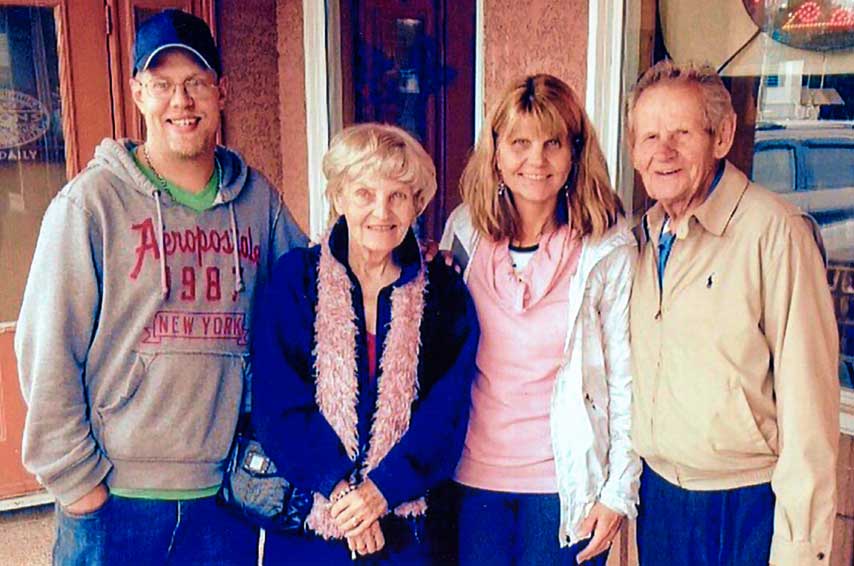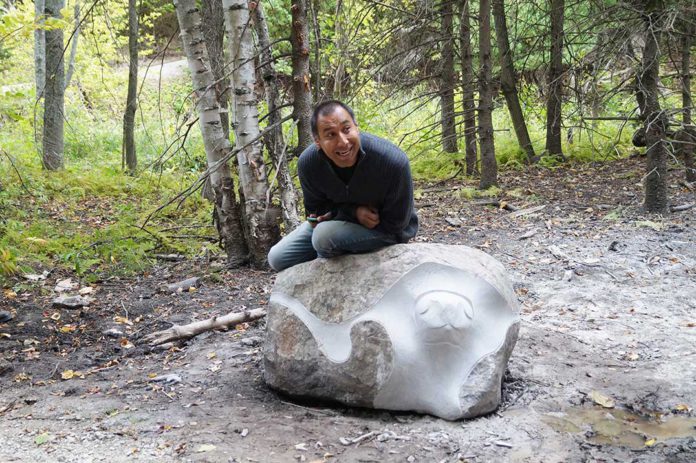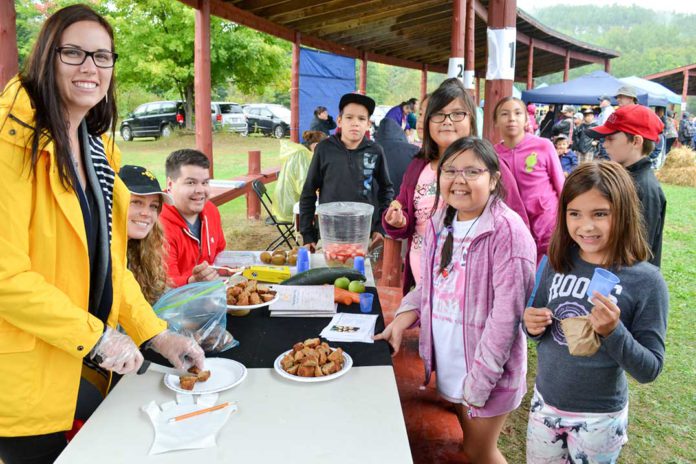Helmut Will
Helmut and Brunhilde (Bruni) live a quiet life in beautiful Providence Bay, in a home they designed and built. Their lives are a stark contrast to their time in Germany during and after the Second World War. Helmut was forced to grow up quickly. Helmut begins, “I was born on February 24, 1932 and grew up in the Baltic Sea area of Northern Germany. School ended soon after the bombing started and the sirens began their intermittent blasts. We lived at home until 1944 when Russian troops were approaching. My father Johan, was already a soldier.”
“Grandfather, George Schillwittis 59, had a huge, thriving farm. With great difficulty and much sadness, he put his wife, Anna, a headmaster in a local school, my mother Anna, my little sister, Hildegard and me onto a wagon pulled by two of his favourite horses. He added a few papers and precious mementos. We had to leave our home quickly. Grandfather was staying to defend the ‘fatherland.’ Men below 60 and boys over 16 were recruited. “It was a stressful goodbye for my grandmother. She knew she might never see her husband again.”

“We travelled west for four days until we got to the big River Memel in eastern Germany. There were hundreds of wagons trying to get to the other side. Germany had bombed the bridge to keep the invaders out but now our escape was prevented too. Small motorized ferries were taking four wagons at a time across the river. After half-a-day waiting in the field, we could hear the artillery of the advancing Russians. A German army general on a horse, with a megaphone, spoke to his legion of civilians. ‘All women and children must leave immediately to avoid being confronted by the Russian troops.’”
The family learned that there was a big boat that could take them away, immediately, without the wagon and the horses. The family was promised a temporary shelter in a schoolhouse. “My grandmother wanted to wait until the horses and the wagon could come too. She said it was all she had left of their life in Germany. My mother, my sister and I got on the boat but my heart was breaking. I couldn’t leave my grandmother. I begged my mother to let me go back to convince her to come with us. She let me go and I rushed back.”
“It is useless to stay here and be attacked,” I pleaded. “Let the horses go and leave the wagon.” Eventually, she overcame emotion and saw the logic. Helmut’s heart sank as he saw the boat, with his mother and sister on board, give its final siren and leave the dock. Helmut and his grandmother were left behind.

Another German General announced, “This is your last chance to get out, the Russians are very close.” The wagon was abandoned and the proud faithful horses were let loose with a sad farewell. Only a handbag with scant few papers came along. Anna tossed away a steel box which fell open, spewing silver coins. “I always wondered what was in that steel box. I gathered up as many of the coins as I could and stuffed them in my pockets.” Grandmother and grandson ran for the river.
Late that afternoon, they found a man with a boat who was taking people across. “He lived on the other side and was hoping he could salvage our horses or our wagon. Grandmother told him he could have anything from the wagon but the horses were running free. He Picked one of the two beautiful harnesses that we had left in the wagon. Then he tried to get his overloaded boat across the big river. Clearly that was not safe. Luckily, there was another bigger boat about to leave and some of us transferred there.” This vessel went inland towards Braunsberg in East Prussia, far away from the marching Russians and also far away from Helmut’s mother and sister.
In Braunsberg, Helmut and his grandmother got on a train and headed for Dresden, still intact, before the bombing there. They found a place to live in Graupa, just outside of Dresden. Private homes offered places for ‘Fluchtling’ (war refugees). “I had only the clothes I wore so my grandmother went to the local city hall in Pirna to get money for an outfit”.
Grandmother left Helmut at home to save fare. She got money for an outfit and while shopping at Union Station, she happened to meet a lady from home. ‘Do you know where your daughter is?’ the friend asked suddenly. Grandmother said ‘no’. Anna was stunned with the response, “I will take you to see your daughter.”

Grandmother got on the train with her friend and soon was joyfully reunited with her daughter and granddaughter. They stayed overnight and returned the next day. Helmut, alone in a strange town, recalls looking out of the window at a long walkway. His heart leapt when he recognized his mother, grandmother and sister slowly approaching. It was a powerful moment that he will never forget.
The family moved in with grandmother’s friend in Saxon, but a short while later, the government decided this area was getting too crowded. The local schoolhouse had been bombed leaving precious few places to shelter. The Will family was selected and they were soon on a train bound for a schoolhouse in Steyr, Austria. About 40 to 50 people were put in each classroom. “I don’t like this desperate situation,” I told my mother. “I am going out to look for work.”
Helmut, 12, ventured forth into the hills and began to walk up to each farm house. “I introduced myself and told them I was a ‘Fluchtling’ from East Prussia. I said that I know all about farming and horses.” “What can you do for me at such a young age” each farmer asked him, with a tone of scepticism. One farmer liked the spunky young lad. “I need to have my fields worked with oxen, not horses, but I will give you a chance. Let your mother know where you are. Here is some milk and some bread. Come back tomorrow.”
Helmut was back the next morning and he was introduced to the oxen. ‘’Unfortunately, these beasts had a minimal response to commands. You had to be very ‘persuasive’ to get them to move,” the elder recalls. “Each evening Helmut would return with food for his family. In short order, his family was moved out of the schoolhouse, into a home.

“In May of 1945. the farmer told me he heard on the radio that the war was over. He told me to return to my family so I wouldn’t be separated when they left.” Helmut went home but returned the next day, when nothing was happening. It was October before the Austrian government decided to send the refugees back to Germany. “I quit my job, joined my family and was transported by train back to Germany. We had arrived in coach cars but returned in cattle cars.”
The train stopped in several places during the eight-hour trip. In Czechoslovakia, Helmut took a small metal milk can, jumped off the train to look for food and milk. The store owners gave him what they could. At another stop, Helmut saw the train pull out before he could return. “My mother ran to the conductor and begged him to stop the train. ‘You can’t leave until my son gets back on the train’ she pleaded. He acquiesced and the train stopped for Helmut.
“Our final destination was Windsheim, where we found shelter in homes. Each family had one room with blankets and a small stove. A new life-rhythm unfolded. Helmut started school after missing 18 months. He had left school in Grade 6. “Do you think you could manage Grade 8?” the teacher asked him. Helmut thought he could and finished his public schooling six months later.
An earlier recruitment drive to the school had given Helmut information about available work. One company was looking for a millwright. Helmut’s mother signed a contract with the company that would take her son on as an apprentice. The company was a four-hour train ride away and Helmut would spend the next three years as a millwright, away from his family, paying room and board. “I made Journeyman at age 17.”

Helmut’s father, a prisoner of war in Russia, was released in 1948. His dad returned to the home he had left years earlier. He found out his father-in-law George, had been evicted from his farm and moved to town where he was ‘hiding’ from the Russians. George had been a local mayor and the Russians had already detained or arrested him twice. George was not easily convinced that he was talking to his son-in-law. It could be another trick. After some time, George realized he was talking to his daughter’s husband and a happy reunion followed. George had been in touch with his wife by letters so his son-in-law learned about a Saxon address. The people who lived at that address knew where they had moved on to.
It was Easter, Good Friday, and Helmut had returned home from his job. As their father approached on the sidewalk, a little girl that could be his daughter was outside, sweeping the dust away. “Does the family Will live here?” he asked her. “Yes”, she responded. “Why are you staring at me? Do you want me to show you the family?” “Yes” my father said. She took his hand and led him to the family. He put his head into the room. “Papa,” Helmut cried. It was another emotional reunion. All of them had made it through the bitter war and things were looking up. Helmut was a Journeyman with good job offers and the family was together again.
“I worked for several companies as a millwright and began to enjoy some leisure time. I met Bruni at a dance in Nuremburg. She was very pretty, but her girlfriend didn’t like me at first. Her friend felt men on big BMW motorcycles were not trustworthy.” Nevertheless, the two hit it off, continuing to see each other. “We both wanted to be sure before we would discuss marriage.” Bruni adds. She had ‘divorced’ friends and she wanted to be confident.

Helmut left Bavaria for a while but kept in contact with his sweetheart. He got a good job as a foreman in a Holland warehouse, loading and unloading ships. He was intrigued with the art of running a boat and signed on. It seems Helmut saved the ship and crew on his first voyage. “There had been a heavy fog on the Rhine River. The captain was at the back steering the ship and I was at the front equipped with only a bell for communication. ‘If you see a boat, ring the bell or drop anchor’ the captain instructed.”
Helmut spotted a big boat heading right for their fully laden ship. He rang the bell and dropped the anchor. The other boat did the same and a tragedy was averted with both vessels nose to nose. Helmut also lowered the bumper tires to avoid direct contact. The happy captain gave him a raise but after six months, the restless young sailor wanted to move back home.
It was 1955 when he decided to move to Canada. Helmut had a choice of going to South Africa where he could work as a guard or move to Canada. His friend was going to accompany him to South Africa but changed his mind at the last minute, so Canada became the country of choice. Helmut’s application turned into a six-months process. It included a police check, medical history, and X-rays.
Bruni took six months longer to get her visa, sponsored by Helmut who already who had his. Helmut said goodbye to his fiancé and set off for Canada to pave the way for her arrival. He had traded in his motorcycle to pay for his journey. The ship left port in July of 1956 and, despite engine trouble, arrived in Canada 10 days after leaving Europe. Helmut had $50 and no job. Within two days, he found work as a millwright at Maple Leaf Mills in Toronto. A translator helped with the interview. They hired him but insisted he learn English. He found room and board and enrolled in an English night school class at a local school.
When Bruni arrived eleven months later, she found a waiting apartment and a fiancé with a job. They were married a few weeks later on June 15, 1957 at St. Patrick’s Church. Their Latvian landlord drove the newlyweds to Niagara Falls for their honeymoon.

Helmut left his job at Maple Leaf Mills and began to work for a German company, ‘Automatic Staples’ in 1963. That year, he and Bruni travelled to Hanover, Germany, the head office of Automatic Staples, for a visit and a holiday. Bruni also joined her husband initially, when the company opened a branch in Kingston, Jamaica. Helmut had to stay for a whole month to set up the production of staples for banana boards. By 1965, he was manager of production. A quote from the company newsletter, ‘The Clincher’ of January 1978 holds that ‘Helmut was responsible for increasing their capacity from 40 boxes to 3000 boxes of staples per day. He is also the expert who is called in to find a solution when things go wrong.’
Back home, Bruni had found work at the Rexdale Sears as a division manager. She had taken courses and earned diplomas in administration. Helmut soon mastered his English too and began to read DIY books in home construction, electrical wiring and stone laying. Their landlord was also an architect and he offered to design the home they would eventually build in Providence Bay. “I insisted on a sunken living room.” Bruni adds, smiling.
Two children were born, Gary and Susan. Bruni spoke German with them but was told by a neighbour that they might have a hard time in school if they only knew German. When Gary was five, his mother began to speak English to him and within a few months, he mastered the language and was keeping up with his peers. Gary is now a successful lawyer in Oakville, with his own law firm of 21 lawyers. Susan teaches school in Scarborough.
“Susan was four the first time we visited Manitoulin Island in 1966. We were looking for a vacation spot. Wasaga and Sauble were too crowded and vehicles could travel the beach. We got into our Volkswagen, drove north and explored the Island. Little Current had no beach. Elizabeth Bay and Misery Bay had roads through the sand. Providence Bay had the biggest beach on the map. We stayed at the Fulford Cottages after meeting Hardy Fulford. His cabins were full but he let us stay with him and his family. We returned for many summers after that.”
When the family decided to get a home on the Island, the late J.F. McDermid offered to show them around and they considered several options. A couple of years later, Hardy Fulford contacted them and offered them part of his property on the dead-end street. They chose two lots and two years later, in 1975, began the construction. “I came up alone and asked Calvin Pearson to remove the trees and dig a hole for the basement. Cement blocks came from Murray McDermid. I mixed the mortar and cement for the blocks, put in the floor joists and covered it all up with plastic before returning to Toronto.”

The family spent three weeks each summer working on their cottage. Sixteen-year old Gary helped too. The plans had been devised in Toronto, parts laid out in the back yard and labelled, to save time for building on Manitoulin. The walls and a roof went up in one week with trusses built by Roy Bryan. The family moved into their beautiful home in 1985. Reg and Grace Dewar became good friends. Later son Lyle became a good pal too.
“Looking back, my fondest memories were getting married in Toronto, sharing it with 12 special friends and the birth of my son and daughter. I remember my grandparents with great empathy. My grandfather told me, ‘you will be an ambitious man with much success, possibly an engineer who will build a great ship.’ I guess that had influenced me somewhat when I chose to work in the shipyard.”
“He also said, ‘Alles neues macht der Mai, Macht die Seele frisch und frei’ (All the creative, new things start in May to make a person’s soul fresh and free).” Building his cottage may have brought this philosophy to mind. Spring has always had a special charm for Helmut. “I remember hanging on to my grandfather riding a bicycle in the early spring. I also rode his handsome farm horses. He even taught me how to swim.”

“If I could go back in time, I might have gotten more education. I would have made more investments with financial backing but that is behind me now. Both Bruni and I have always paid cash for all purchases, including this house. Only the Toronto house had a mortgage. My biggest project has been the construction of this beloved family home.”
“Manitoulin is the greatest place to live. I could say that I really don’t want to live anyplace else. I love it here. Beauty is all around. I have my own safe water supply. There could be more shopping here but that is not so important. I am still going strong at 84 and so is Bruni. I listen to my bee colony and enjoy the honey we harvest. In the winter, we head for our mobile home in Alabama but we always love coming back to Manitoulin. This is an extraordinary place for both of us.”





